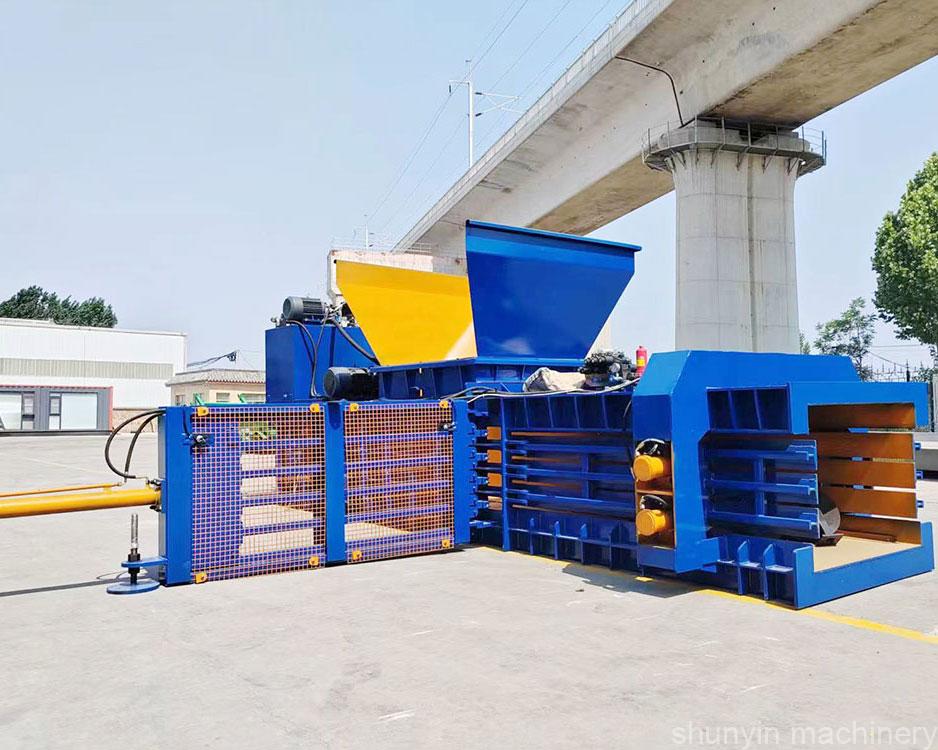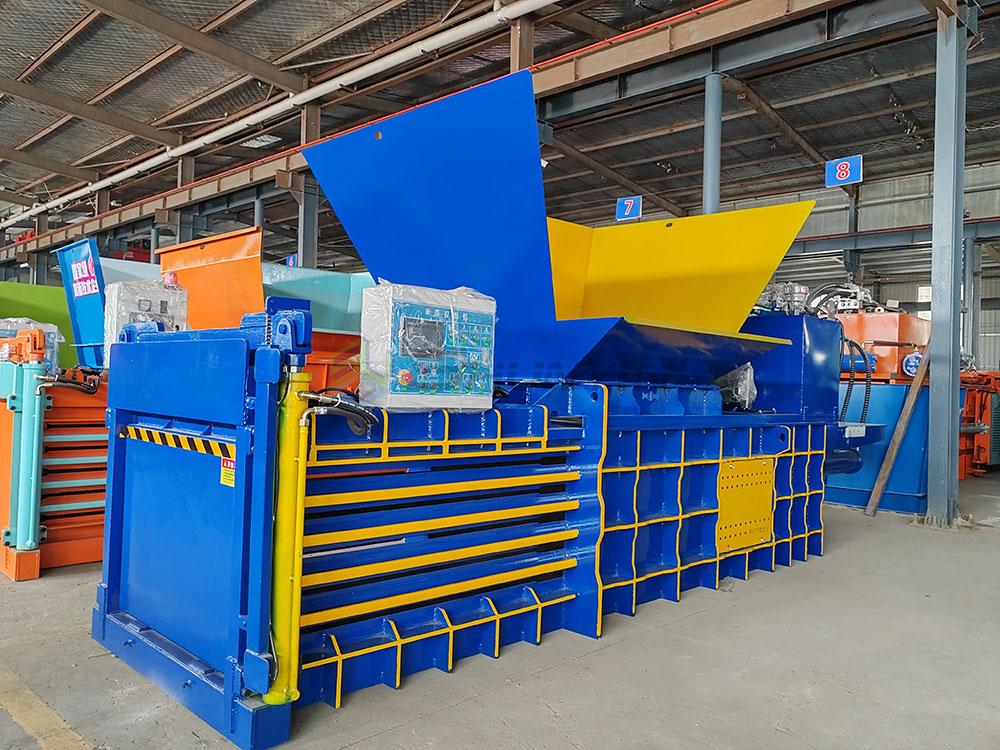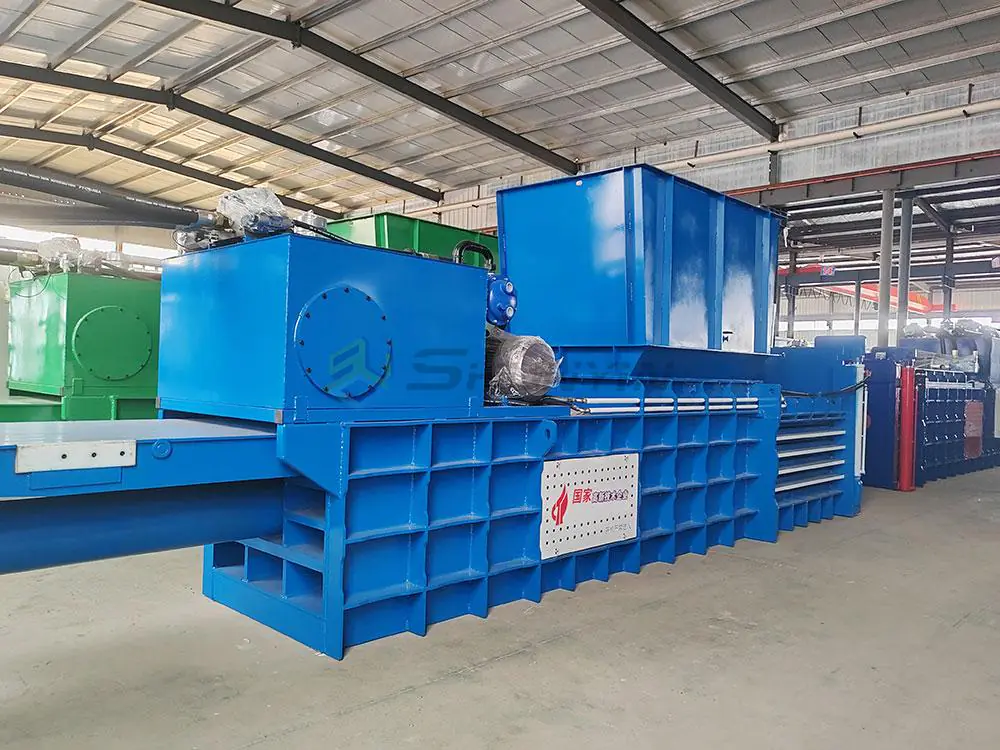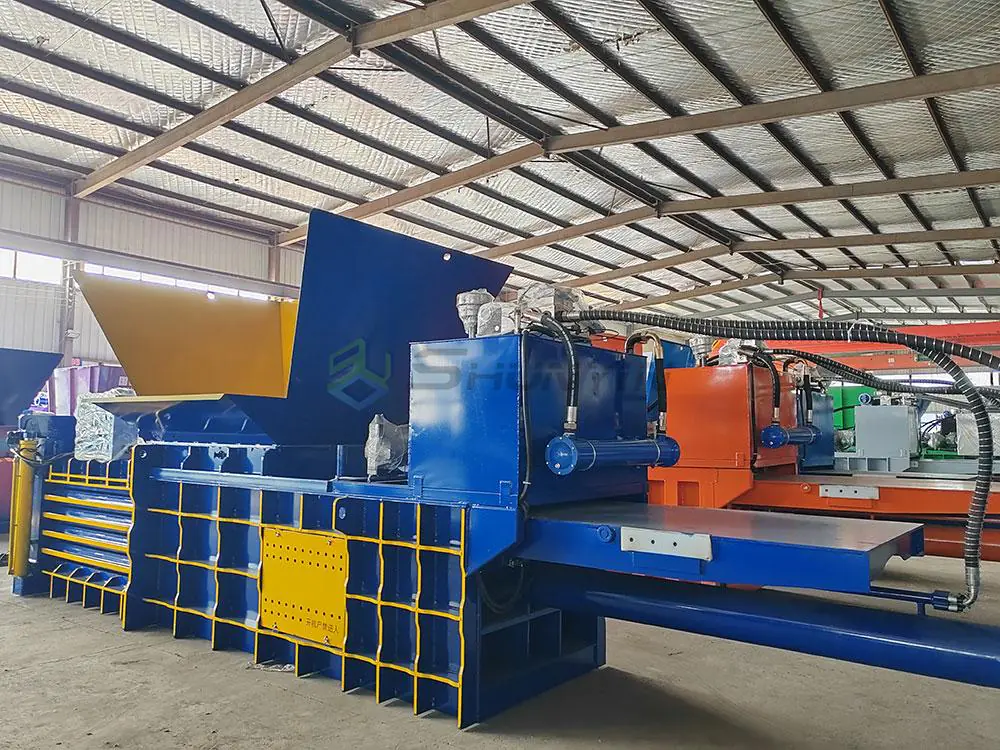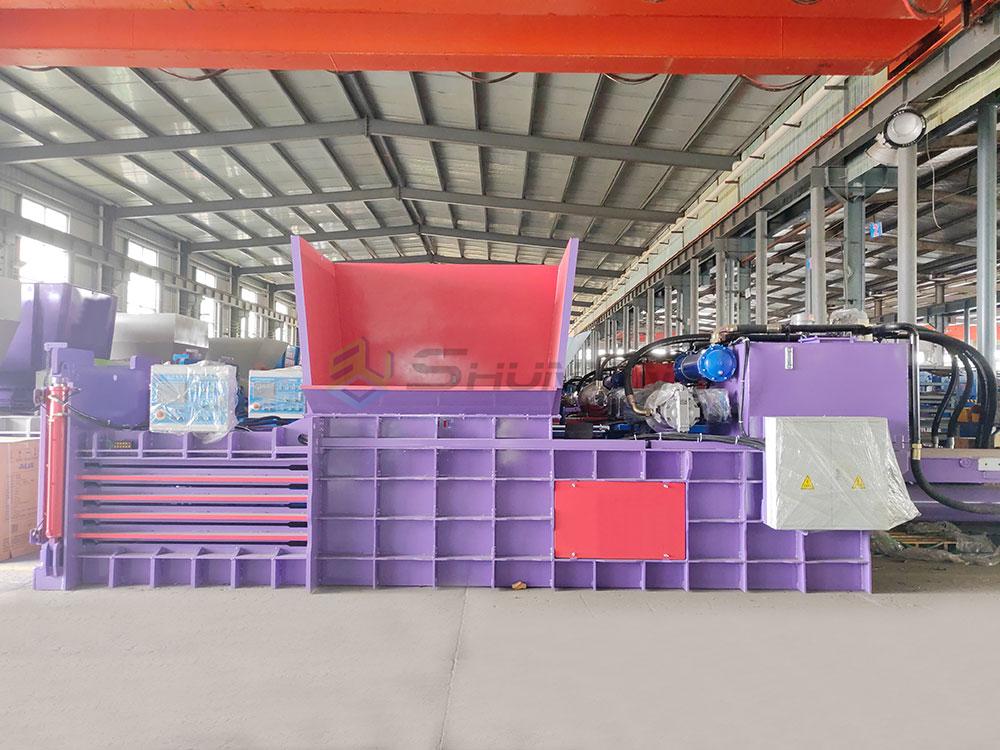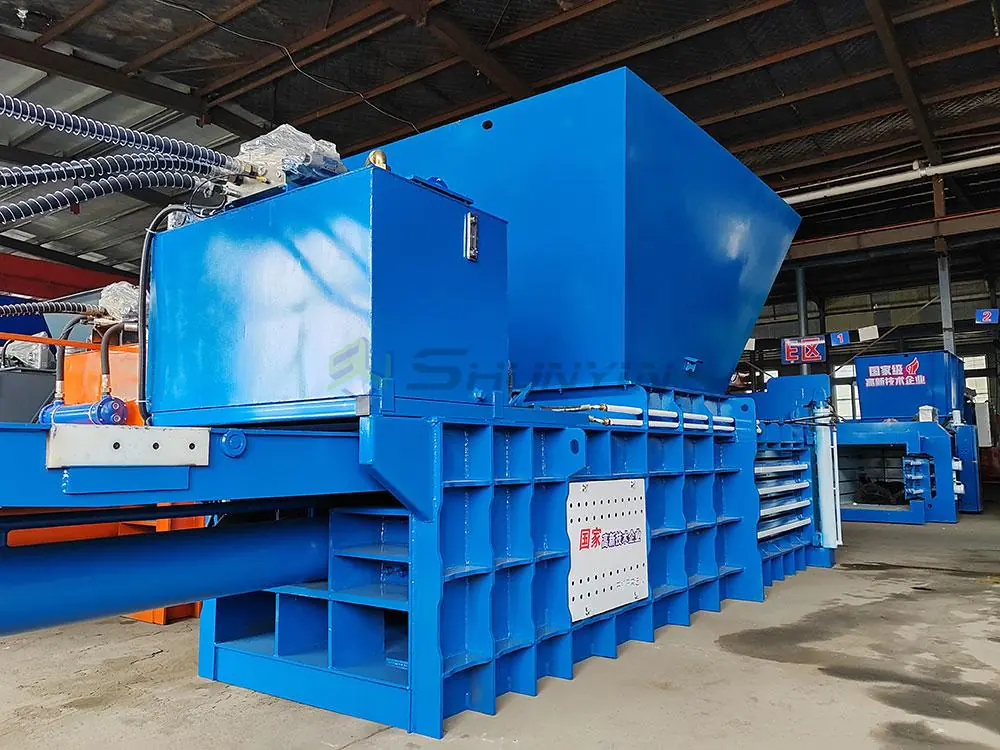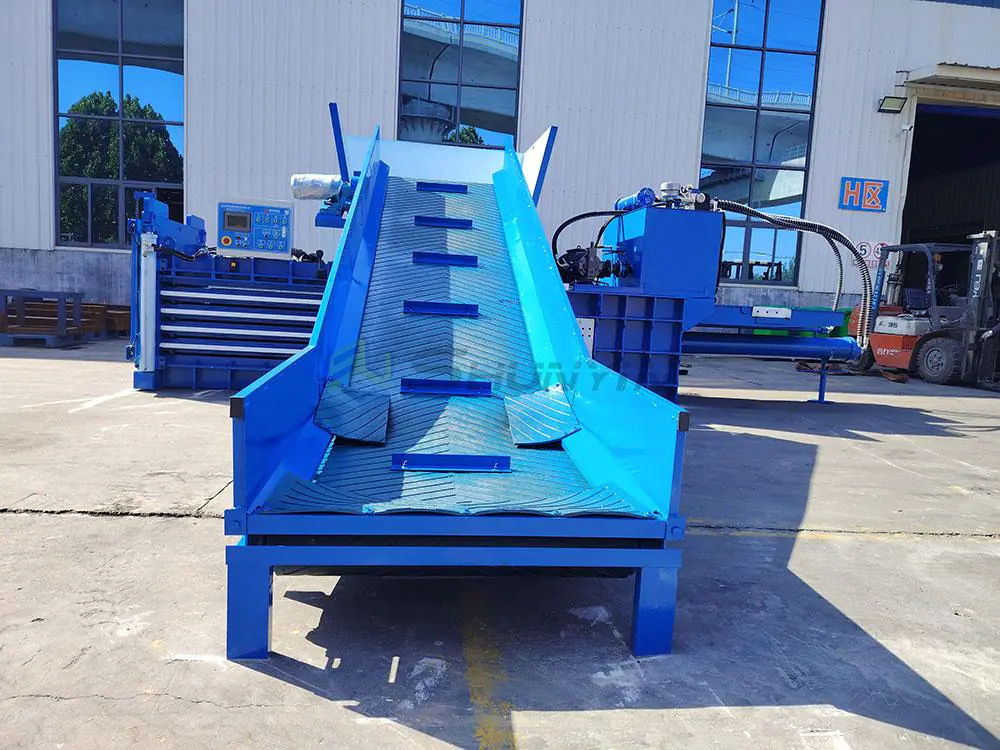Struggling to streamline your recycling process? An automatic baler might be the solution you need.
An automatic horizontal hydraulic baler machine is designed for compressing and baling materials like cardboard, plastics, and paper. It uses hydraulic power for efficient operation, ensuring consistent bale sizes. Ideal for recycling industries, it improves waste management, reduces labor, and enhances productivity through automation and high-pressure performance.
Let me share my experience with integrating this technology into our operations.
What is the price of automatic baler?
Understanding the cost of an automatic baler is essential for budgeting and investment decisions.
The price of an automatic baler varies depending on its size, features, and brand. On average, prices range from $10,000 to $50,000 or more. Factors such as customization, capacity, and additional features like automatic tie systems or energy-efficient designs can influence the final cost of the baler.
When I first considered purchasing a baler, the price range was a significant factor in my decision-making process.
Factors Influencing the Price
Several elements affect the cost of an automatic baler:
| Factor | Impact on Price |
|---|---|
| Capacity | Higher capacity models are pricier |
| Features | Advanced features increase cost |
| Brand | Established brands may charge more |
| Customization | Custom options can add to expenses |
| Installation | Professional setup may incur fees |
Capacity and Size
Balers with higher capacity can handle more material per cycle, leading to increased efficiency but also higher costs. It’s crucial to assess your operational needs to balance capacity with budget.
Advanced Features
Features like automated control systems, safety mechanisms, and energy-efficient components can enhance performance but also raise the price. Evaluate which features are essential for your operations to make an informed investment.
Brand and Warranty
Reputable brands often come with higher price tags but offer better reliability and comprehensive warranties. Investing in a trusted brand can reduce long-term maintenance costs and ensure smoother operations.
What is an automatic baler?
An automatic baler is a machine designed to compress recyclable materials into compact bales with minimal manual intervention.
An automatic baler is a machine that compresses and ties materials, such as cardboard or plastic, into compact bales for easy storage or recycling. It operates without manual intervention, offering higher efficiency and consistency in waste management. Automatic balers save time, reduce labor costs, and improve overall processing.

Integrating an automatic baler transformed how we handle recyclables, making our process more efficient and cost-effective.
How It Works
Automatic balers use hydraulic systems to compress materials into dense bales. Sensors and control systems manage the baling process, ensuring consistency and reducing the need for manual operation.
Benefits of Automation
- Increased Efficiency: Faster baling cycles compared to manual balers.
- Reduced Labor Costs: Minimal need for manual intervention.
- Consistent Bale Quality: Automated controls ensure uniform bale size and density.
- Enhanced Safety: Reduced human interaction lowers the risk of accidents.
Applications
Automatic balers are widely used in various industries, including:
- Recycling Centers: For compressing cardboard, plastics, and metals.
- Agriculture: Baling hay and straw.
- Manufacturing: Managing scrap materials efficiently.
Maintenance and Reliability
Regular maintenance is crucial to ensure the baler’s longevity and performance. Automated balers typically require less frequent maintenance due to their advanced engineering and reliable components.
How much pressure does a baler use?
The pressure exerted by a baler is a key factor in determining the compactness and quality of the bales produced.
The pressure used by a baler typically ranges from 20 to 300 tons, depending on the machine’s size and type. Horizontal hydraulic balers, for example, use high pressure to compress materials like cardboard, plastic, and metal into dense, uniform bales, ensuring efficient storage and transportation.

Understanding the pressure requirements helped me select a baler that meets our material compression needs without overextending our budget.
Pressure Requirements by Material
Different materials require varying levels of pressure to achieve optimal compression:
| Material | Required Pressure (tons) |
|---|---|
| Cardboard | 50-100 |
| Plastic | 80-150 |
| Metal Scrap | 100-200 |
| Wood Chips | 60-120 |
Balancing Pressure and Efficiency
Higher pressure results in more compact bales but can increase energy consumption and wear on the machine. It’s essential to balance pressure settings to achieve efficient baling while maintaining equipment longevity.
Adjustable Pressure Settings
Many modern balers offer adjustable pressure settings, allowing operators to tailor the compression based on the material type and desired bale density. This flexibility enhances the baler’s versatility and efficiency in handling different recyclables.
Energy Consumption
Higher pressure operations typically consume more energy. Selecting a baler with energy-efficient hydraulic systems can help manage operational costs while maintaining high compression levels.
What is hydraulic baling press machine?
A hydraulic baling press machine is a type of baler that uses hydraulic power to compress materials into dense bales.
A hydraulic baling press machine uses hydraulic power to compress materials like paper, cardboard, plastics, and textiles into compact bales. This equipment is ideal for recycling and waste management industries, providing efficient space-saving and material handling solutions. The press’s adjustable pressure makes it suitable for various materials.

Implementing a hydraulic baling press machine was a game-changer for our recycling operations, providing reliable and high-quality bales consistently.
Components of a Hydraulic Baler
- Hydraulic Cylinder: Provides the force needed to compress materials.
- Frame: The structural base that supports the baling process.
- Controls: Automated systems that manage the baling cycle.
- Compression Chamber: The area where materials are compressed into bales.
- Ejection System: Releases the finished bale from the chamber.
Advantages of Hydraulic Systems
- Consistent Pressure: Ensures uniform bale quality.
- High Efficiency: Faster compression cycles compared to mechanical systems.
- Durability: Hydraulic components are robust and long-lasting.
- Precision Control: Allows for adjustable pressure settings to accommodate different materials.
Applications in Various Industries
Hydraulic baling press machines are versatile and used across multiple sectors:
- Recycling: Compressing paper, plastics, metals, and other recyclables.
- Agriculture: Baling hay, straw, and other organic materials.
- Manufacturing: Managing scrap and waste materials efficiently.
- Waste Management: Reducing the volume of waste for easier disposal and transport.
Maintenance and Best Practices
Proper maintenance of hydraulic balers is essential for optimal performance:
- Regular Inspection: Check hydraulic fluid levels and look for leaks.
- Lubrication: Ensure all moving parts are well-lubricated to prevent wear.
- Cleaning: Keep the machine clean to avoid material buildup that can impede operation.
- Scheduled Servicing: Follow manufacturer guidelines for routine maintenance and part replacements.
Implementing these best practices ensures the longevity and reliability of your hydraulic baling press machine, maximizing your investment.
Conclusion
Investing in an automatic horizontal hydraulic baler machine can significantly enhance your recycling efficiency and profitability.

